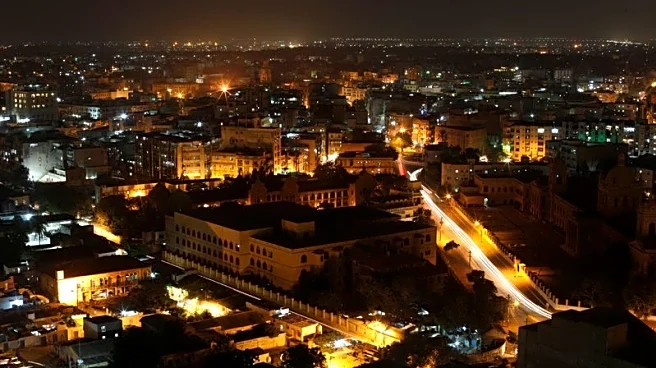By Ariba Shahid
KARACHI (Reuters) -Pakistan's central bank is expected to keep its key interest rate unchanged at 11% on Monday, a Reuters poll showed, as analysts said flood-driven food inflation and a low
base effect are likely to limit the scope for further monetary easing.
All 10 analysts surveyed expect the State Bank of Pakistan (SBP) to keep the policy rate unchanged, extending its pause as recent floods ravaged farmland and border closures with Afghanistan drove up prices of staples like tomatoes and apples.
"An elevated inflation reading in September, incorporating the impact of the recent floods, is likely to incline the MPC to keep the policy rate at the same level," said Fawad Basir, head of research at KTrade, adding that the next cut was likely in the last quarter of FY26, starting July 2026.
FOOD PRESSURES, BASE EFFECT WEIGH ON OUTLOOK
Since October 11, border closures with Afghanistan following clashes have disrupted trade and deepened food shortages, intensifying inflationary pressures.
The SBP last held rates in September, warning floods could push inflation above its 5%–7% target. Pakistan's headline inflation rate accelerated to 5.6% on a year-on-year basis, up 2% from the previous month.
Floods, in August, swamped Punjab's farmland and industrial hubs, killing more than 1,000 people, displacing 2.5 million and damaging crops and factories.
CAUTIOUS POLICY PATH AHEAD
The central bank has room to stay on hold as real interest rates remain comfortably positive after inflation eased earlier this year, analysts said.
"While receding flood risks and lower global oil prices have improved the near-term inflation outlook, last year's low base is expected to push monthly readings higher," said Amreen Soorani of Al Meezan Investments.
"Given the central bank's preference to keep a real interest margin of around 300 basis points, there is little room for a rate cut," she added.
The central bank has lowered rates by 1,100 basis points since June 2024, when they peaked at 22% after inflation neared 40% the year before. Its last 100-bps cut came in May, followed by holds in June, July, and September amid uncertainty over energy and food prices.
(Reporting by Ariba Shahid in Karachi; Editing by Sherry Jacob-Phillips)











